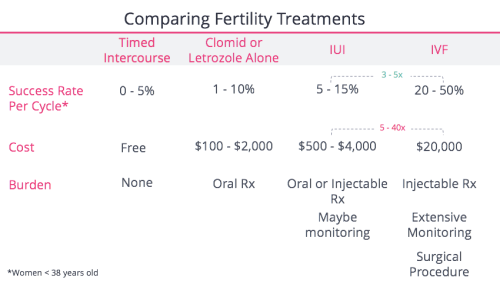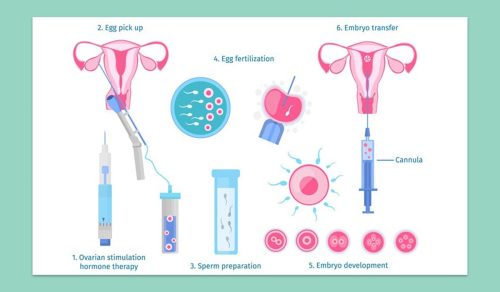
Hyperprolactinemia and Infertility: Insights from a Fertility Specialist
As a fertility specialist, I’ve had the privilege of helping many couples navigate the complexities of infertility. One condition that often surprises women when they first hear about it is hyperprolactinemia, a medical term for having too much prolactin in the blood. You may not have heard of it before, but if you’re struggling to conceive, this could be one of the hidden culprits.
When I first meet women with infertility issues, they’re often focused on more obvious factors like age, ovulation, or sperm quality. But when the usual treatments aren’t working, we often look deeper, and that’s when I sometimes uncover hyperprolactinemia. The good news is that with proper diagnosis and treatment, many women with high prolactin levels can go on to have successful pregnancies.
What Is Hyperprolactinemia?
Prolactin is a hormone that’s best known for its role in breastfeeding—it helps women produce milk after childbirth. But when a woman’s prolactin levels are too high, it can interfere with ovulation and, ultimately, fertility. Hyperprolactinemia can be caused by a variety of factors, including:
- Pituitary tumors (prolactinomas): These are benign growths on the pituitary gland, which sits at the base of the brain and controls many important hormones, including prolactin.
- Medications: Certain medications, like antidepressants, antipsychotics, and blood pressure medications, can cause elevated prolactin levels.
- Thyroid problems: An underactive thyroid (hypothyroidism) can lead to higher prolactin levels.
- Stress: Physical or emotional stress can also raise prolactin levels temporarily.
When prolactin levels are too high, it disrupts the normal balance of reproductive hormones and can prevent ovulation. Without ovulation, pregnancy becomes much more difficult.
A Case That Taught Me a Lot
One of the most memorable cases I’ve had involved a patient named Sarah. She came to me after several months of trying to conceive without success. Her cycles were irregular, and she had noticed that she wasn’t producing milk, despite having had two children in the past. After a thorough evaluation, we discovered that Sarah’s prolactin levels were abnormally high.
Sarah had no idea this was an issue. She had never experienced problems with her cycles in the past, and she had successfully given birth to two children years earlier. But now, as she was trying to expand her family, her body wasn’t cooperating.
When we discussed the situation, I explained how elevated prolactin could be preventing her ovaries from releasing eggs properly. Without proper egg release (ovulation), it would be very hard to get pregnant. Sarah was understandably frustrated, but we decided to start treatment right away.
Dr. John Harrison, a colleague of mine, often says, “Hyperprolactinemia can be a tricky condition to diagnose because it doesn’t always present obvious symptoms. But once you spot it, treating it is usually straightforward, and the results can be very rewarding.”
For Sarah, we prescribed a medication called bromocriptine, which helps reduce prolactin levels. After a few months of treatment, Sarah’s prolactin levels returned to normal, and her ovulation resumed. She was able to conceive naturally shortly afterward, and now she has a third child.
This case stands out to me because it highlights how hyperprolactinemia can affect women of all ages—even those who’ve had children in the past. It’s a reminder that infertility doesn’t always have a clear cause, but often, with the right diagnosis, treatment can make all the difference.
How Hyperprolactinemia Affects Fertility
In order to understand why hyperprolactinemia can make it hard to get pregnant, it’s important to know how the hormone system works. Prolactin doesn’t just regulate milk production; it also affects other hormones that are critical for ovulation, such as estrogen and progesterone. When prolactin levels are high, these reproductive hormones can become unbalanced, which can prevent ovulation (the release of an egg from the ovary).
Without ovulation, there is no egg available for fertilization by sperm, making conception impossible. In some cases, high prolactin levels can also cause irregular periods, infertility, and even luteal phase defects, where the uterine lining doesn’t properly support a pregnancy.
In the more severe cases, when prolactin levels are very high, the cause could be a prolactinoma—a benign tumor on the pituitary gland. While prolactinomas are not cancerous, they can be large enough to affect the function of nearby brain structures, causing symptoms such as headaches, vision problems, and, of course, hormonal imbalances that interfere with fertility.
How to Diagnose Hyperprolactinemia
The diagnosis of hyperprolactinemia begins with a blood test to measure prolactin levels. A level above 25 ng/mL is generally considered elevated, although it’s important to note that each lab has its own reference range. If prolactin levels are high, further testing is often recommended to figure out the cause.
Dr. Emily Roberts, an endocrinologist I frequently work with, advises, “It’s important to differentiate between different causes of hyperprolactinemia. A blood test is only the beginning, and imaging studies, such as an MRI, can help us understand whether a prolactinoma or another issue is at play.”
Treatment Options for Hyperprolactinemia
Once hyperprolactinemia is diagnosed, the treatment depends on the underlying cause. Here are the main options:
- Medications: The most common treatment for high prolactin levels is dopamine agonists, such as bromocriptine or cabergoline. These medications lower prolactin levels and help restore normal ovulation. Most women respond well to this treatment and are able to conceive naturally.
- Surgery: If a prolactinoma (pituitary tumor) is diagnosed, and medication doesn’t work, surgery may be needed to remove the tumor. However, this is less common as medications are often effective in reducing prolactin levels.
- Thyroid Treatment: If hyperprolactinemia is due to an underactive thyroid, thyroid hormone replacement can help regulate prolactin levels.
- Stopping Certain Medications: In some cases, elevated prolactin levels are caused by medications, such as antipsychotics or antidepressants. If that’s the case, your doctor may adjust your medications or suggest alternatives that don’t affect prolactin levels.
The Emotional Impact of Hyperprolactinemia
For many women, being told that infertility is due to hyperprolactinemia can feel like another hurdle in an already emotional journey. It’s easy to feel overwhelmed or discouraged, especially when you learn that a hormone imbalance might be the culprit.
But as I always tell my patients, “Infertility is just one part of your story, and this doesn’t define you. With the right treatment, there’s every chance you can go on to have the family you’ve dreamed of.”
It’s essential to remain hopeful. Many women with hyperprolactinemia go on to conceive after treatment, and with the right care, there’s a good chance you’ll see your dream of becoming a mother come true.
Conclusion: A Path to Hope and Pregnancy
Hyperprolactinemia is a relatively common but often misunderstood cause of infertility. It may seem daunting, but with the right diagnosis and treatment, most women can successfully overcome it. If you think high prolactin levels could be affecting your fertility, I encourage you to consult with a fertility specialist. Together, we can explore your options and create a plan that will help you get on the path to parenthood.
As I tell all my patients, “It’s a journey, and though it might take a little time, we’re in this together. Let’s make it happen.”




